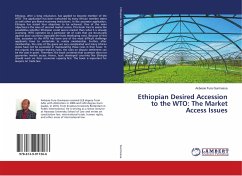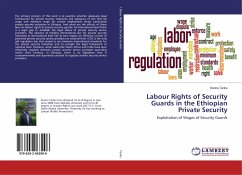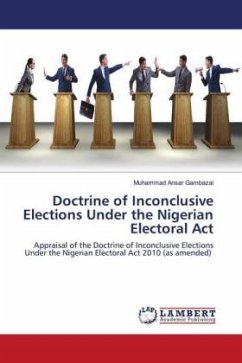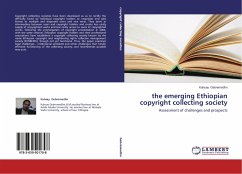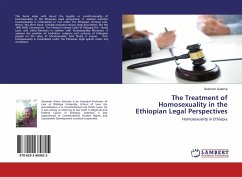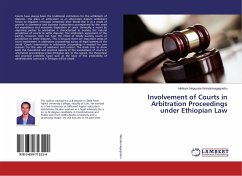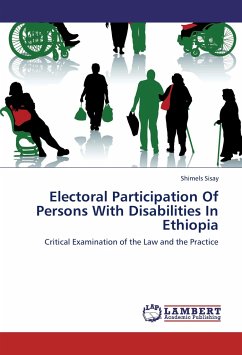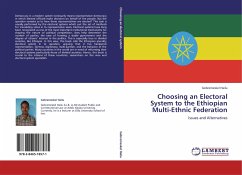
Choosing an Electoral System to the Ethiopian Multi-Ethnic Federation
Issues and Alternatives
Versandkostenfrei!
Versandfertig in 6-10 Tagen
32,99 €
inkl. MwSt.

PAYBACK Punkte
16 °P sammeln!
Democracy in a modern system necessarily means representative democracy in which elected officials make decisions on behalf of the people. But the question remains as to how these representatives are elected? This task is usually performed by the electoral systems which put the set of methods for translating votes in to representative seats. Electoral systems have long been recognized as one of the most important institutional mechanisms for shaping the nature of political competition, they help determine the number of parties, the ease of forming a stable government and the degree of citizens...
Democracy in a modern system necessarily means representative democracy in which elected officials make decisions on behalf of the people. But the question remains as to how these representatives are elected? This task is usually performed by the electoral systems which put the set of methods for translating votes in to representative seats. Electoral systems have long been recognized as one of the most important institutional mechanisms for shaping the nature of political competition, they help determine the number of parties, the ease of forming a stable government and the degree of citizens interest in the politics. This is especially true in divided societies, like Ethiopia. In this view, this book calls the Ethiopian plurality electoral system in to question, arguing that it has hampered representation, fairness, legitimacy, multi-partism, and the behavior of the political parties. Many countries in the world are in need of reforming their electoral systems particularly those of divided societies. Hence, this book is crucial to the citizens of these countries, researchers on the area and electoral system specialists.



